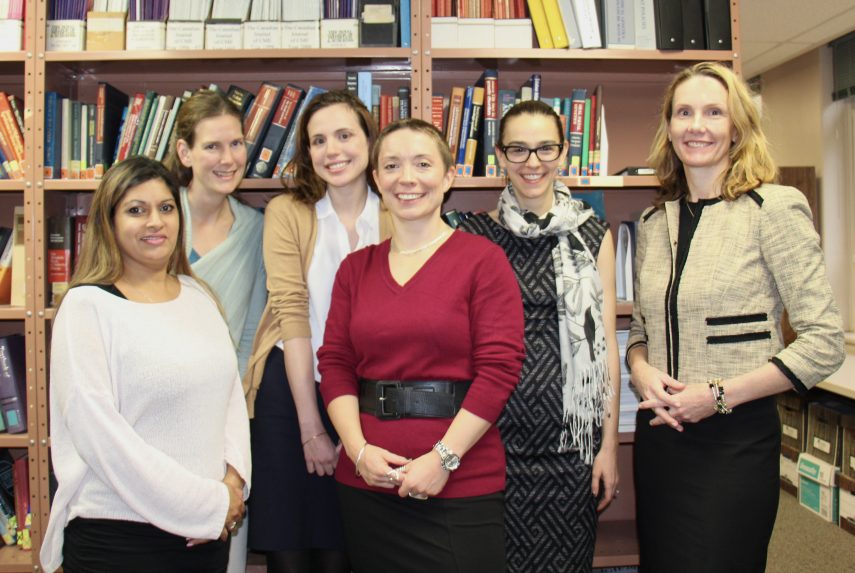- 2016
|
- Runner-Up
|
- Living with Illness or Disability
This award was formally named “Living with Illness”. Our Excellence in Quality category names changed in 2020 to reflect the updates to our BC Health Quality Matrix. Visit our Categories and Criteria page to find out more.
The Psychiatric Genetic Counselling Clinic, based at BC Women’s Hospital, is the first clinic in the world to offer genetic counselling services exclusively to people living with psychiatric illnesses and their families.
This counselling can help people understand the genetic contributions to disease, alleviate the guilt and shame that many with psychiatric illnesses experience, and provide them with strategies for promoting mental wellness.
The Clinic began with novel research into the value of genetic counselling for patients and their families, led by Jehannine Austin. After a few smaller studies, the team’s work culminated in a randomized control trial that investigated the impact of counselling for people with mental illness. All of their studies found that genetic counselling could improve care and support for psychiatric conditions.
With this research evidence behind them, the clinic’s team was able to secure support from BC Mental Health and Addictions, the Department of Medical Genetics/BC Women’s Hospital, BC Children’s Hospital and Canadian Institutes for Health Research that made it possible to launch the Clinic. Services are provided by two board-certified genetic counsellors and supported by a psychiatric genetic counsellor, a clinical geneticist, a psychiatrist and a clinical secretary.
Appointments are provided to family groups or individuals as requested by clients. With accessibility in mind, the team is very mindful of wait times and has managed to ensure that patients wait only two to three weeks for an appointment. A one-month follow-up assessment is conducted by telephone with all clients, at which time the option of an additional appointment is presented. Hospital-based professional interpreters are engaged to facilitate communication as appropriate.
With accessibility and equity in mind, the team has made a full commitment to providing the service for people who live with psychiatric disorders and their families from across the province. They use the telephone, telehealth, and outreach clinics to reach individuals in rural and remote areas.
The team has been collecting quantitative data about patient outcomes – specifically, empowerment and self-efficacy – since the beginning. This data shows statistically significant increases in both outcomes one month after accessing the service. Some patients have been so positively affected by the clinic that they have spoken out publicly about their experiences online and in media interviews.
The team has provided direct services to more than 400 families to date. Results and practices are also shared with the scientific communities through conference presentations, webinars, and workshops. As a world leader in the field, the clinic has provided internships for 18 health care providers from the US, Canada, Singapore, UK, and Germany. Similar clinics are now being established in the California, Texas, Germany, and the UK.


